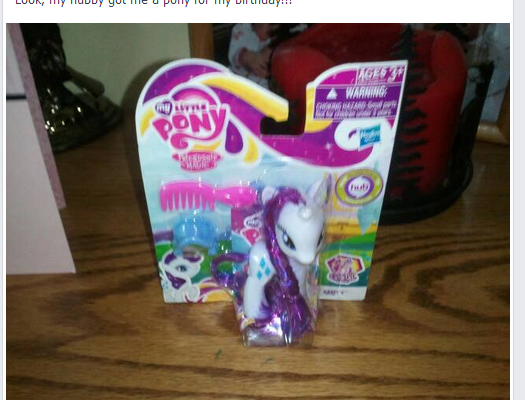- Uop past midnight. 3am feeding. 5am hurts. Back to bed? #
- Stayed up this morning and watched Terminator:Salvation. AWAKs make for bad plot advancement. #
- Last night, Inglorious Basterds was not what I was expecting. #
- @jeffrosecfp It's a fun time, huh. These few months are payment for the fun months coming, when babies become interactive. 🙂 in reply to jeffrosecfp #
- RT @BSimple: RT @bugeyedguide: When we cling to past experiences we keep giving them energy…and we do not have much energy to spare #
- RT @LivingFrugal: Jan 18, Pizza Soup (GOOOOOD Stuff) http://bit.ly/5rOTuc #budget #money #
- Free Turbotax for low income or active-duty military. http://su.pr/29y30d #
- To most ppl,you're just somebody [from casting] to play the bit part of "Other Office Worker" in the movie of their life http://su.pr/1DYMQZ #
- RT @MoneyCrashers: Money Crashers 2010 New Year Giveaway Bash – $8,300 in Cash and Amazing Prizes http://bt.io/DQHw #
- RT: @flexo: RT @wisebread: Tylenol, Motrin, Rolaids, and Benadryl RECALLED! Check your cabinets: http://bit.ly/4BVJfJ #
- New goal for Feb. 100 pushups in 1 set. Anyone care to join me? #
- RT @BSimple: Your future is created by what you do today, not tomorrow"— Robert Kiyosaki So take action now. #
- RT @hughdeburgh: "Everything you live through helps to make you the person you are now." ~ Sophia Loren #
- Chances of finding winter boots at a thrift store in January? Why do they wear our at the worst time? #
- @LenPenzo Anyone who make something completely idiot proof underestimates the ingenuity of complete idiots. in reply to LenPenzo #
- RT @zappos: "Lots of people want to ride w/ you in the limo, but what you want is someone who will take the bus w/ you…" -Oprah Winfrey #
- RT @chrisguillebeau: "The cobra will bite you whether you call it cobra or Mr. Cobra" -Indian Proverb (via @boxofcrayons) #
- RT @SuburbanDollar: I keep track of all my blogging income and expenses using http://outright.com it is free&helps with taxes #savvyblogging #
- Reading: Your Most Frequently Asked Running Questions – Answered http://bit.ly/8panmw via @zen_habits #
Carnival Roundup
Live Real, Now was included in two carnivals last week:

Carnival of Personal Finance #348 hosted by Money Qanda
and
Yakezie Carnival hosted by 101 Centavos
Thanks to all of the hosts for including my posts.
Get More Out of Live Real, Now
There are so many ways you can read and interact with this site.
You can subscribe by RSS and get the posts in your favorite news reader. I prefer Google Reader.
You can subscribe by email and get, not only the posts delivered to your inbox, but occasional giveaways and tidbits not available elsewhere.
You can ‘Like’ LRN on Facebook. Facebook gets more use than Google. It can’t hurt to see what you want where you want.
You can follow LRN on Twitter. This comes with some nearly-instant interaction.
You can send me an email, telling me what you liked, what you didn’t like, or what you’d like to see more(or less) of. I promise to reply to any email that isn’t purely spam.
Have a great week!
Carnivals This Week
I seem to be failing frugal parenting. My son spent the entire week telling me how happy he’d be if we could go to the game store so he could spend some of his money. Tying emotions to shopping is badbadbad.
Live Real, Now was included in four carnivals last week:
Carnival of Financial Planning – Edition #224 at AaronHung.com
Yakezie Carnival – Mardi Gras Edition at Young Adult Finances
Canadian Finance Carnival #76 at Canadian Finance Blog
Carnival of Financial Camaraderie – Rain Man Edition at Thirty Six Months
Thanks to all of the hosts for including my posts.
Get More Out of Live Real, Now
There are so many ways you can read and interact with this site.
You can subscribe by RSS and get the posts in your favorite news reader. I prefer Google Reader.
You can subscribe by email and get, not only the posts delivered to your inbox, but occasional giveaways and tidbits not available elsewhere.
You can ‘Like’ LRN on Facebook. Facebook gets more use than Google. It can’t hurt to see what you want where you want.
You can follow LRN on Twitter. This comes with some nearly-instant interaction.
You can send me an email, telling me what you liked, what you didn’t like, or what you’d like to see more(or less) of. I promise to reply to any email that isn’t purely spam.
Have a great week!
Jules Bianchi – Is a high-risk career worth the money?
 The violent crash at the Japanese Grand Prix calls into question whether the life of a racing driver is worth the money. These men are paid handsomely for their efforts, but they could die at any minute on the track. It is best for people to remember what it is like to do this job, but it is also wise for people to think about what it means to the driver who do this job.
The violent crash at the Japanese Grand Prix calls into question whether the life of a racing driver is worth the money. These men are paid handsomely for their efforts, but they could die at any minute on the track. It is best for people to remember what it is like to do this job, but it is also wise for people to think about what it means to the driver who do this job.
The Risk
The risk in F1 is high, and Jules Bianchi saw that firsthand when he was injured so badly that he had to be rushed to the hospital for emergency surgery for head injuries. His crash was so violent that is stopped the race. People crash all the time, but this crash stopped the race. Bianchi is no doubt a millionaire, but people would wonder why he would risk it all just to drive a car quickly.
Every one of the drivers on the circuit does not have an imagination. People like Bianchi or Schumacher or Alonso or Vettel do not think for a second about what could happen when they crash. These men only think about winning races. They only think about doing their best. They know the risks, but they do not sit around thinking about it.
The Pay
F1 drivers are paid extremely well, and they participate in the most glamorous sport in the world. They do something that is more difficult than any other sport, and it is difficult, but they live the lives of rock stars. They know this fame will be short-lived, but they drive regardless.
Jules Bianchi knew the risks when he got in the car. He is being paid extremely well to do his job, and it is worth it to him. People around the world may not have the bravery or raw talent to become a great driver, but he does. He has a ride on the Formula One World Championship circuit. He has to take his car to the limit if he wants to do well.
The Alternatives
Someone like Jules Bianchi does not have to leave the sport even if he is injured badly. Many drivers will get back in the car, but other drivers will simply move to other parts of the sport. Drivers can become owners, engineers and test drivers. These drivers can become test drivers and designers for auto makers, and they can commentate on the sport they love.
They do not want to go to these alternatives because they cannot drive forever. There is also a Masters Series coming up for F1 where drivers who are over 45 can ride. These men get back in the car at high risk to their lives because it is what they love. When someone is this passionate about something, they must keep doing it.
Horseback Riding Lessons
For the past couple of years, my daughters have been riding in horse shows with a local saddle club. We’ve been lucky in that my wife’s cousin has let us borrow her horse for the shows, so costs have been minimal.
Unfortunately, that horse isn’t available this year. We knew that a few months ago, so the plan was to take a year off from the shows and focus on lessons, to get the girls some real skills. We found a great instructor at a stable about 30 miles from our house. Since we live less than two miles from the border of the biggest city in the state, that’s a comparatively short drive.
We pay her $200 per month for 1 lesson per week for both girls. They each get 30-45 minutes on the horse during each lesson.
Now that show season has started, the plan seems to have changed. The girls will be riding a different borrowed pony tomorrow. The shows cost about $50 for registration, lunch, and gas. Our club has 1 show per month, but my wife has assured me they’ll only be hitting three shows this season and limiting the number of events to keep the cost down.
The direct costs aren’t too bad, but there’s a problem with keeping-up-with-the-Joneses accessorizing. Vests and boots and helmets and belts and shirts, oh my.
I’d guess our costs for the summer will be $300 per month.
One thing we’ve been considering is buying a pony. We can get an older pony for around $500-1000. Older is good because they are calmer and slower. Boarding the thing will cost another $200 per month. We’ve been slowly accumulating the stuff to own a horse, so I’m guessing the “OMG, he let me buy a horse, now I need X” shopping bill will come to around $1500, but I’ll figure $2000 to be safe. We already have a trailer, a saddle, blankets, buddy-straps, combs, brushes, buckets, rakes, shovels, and I-bought-this-but-I-will-just-put-it-in-the-pile-of-horse-stuff-so-Jason-will-never-notice stuff. We’re certainly close to being ready to buy.
(FYI: If you’re starting from scratch, don’t think you’re going to get into horse ownership for less than $10,000 the first year, and that’s being a very efficient price-shopper.)
So we’re looking at $5400 for a horse, gear, and boarding the first year. If we cancel the lessons, by spring we’d have $2000 of that saved and most of the rest can be bought over time.
On the other hand, if we go that route, we’ll never save enough to buy the hobby farm we’re looking for.
Decisions, decisions. I should just buy a new motorcycle. Within a year, I win financially.
Things to teach your kids about money

As parents, it is our job to teach our kids about a lot of things: driving, reading, manners, sex, ethics, and much, much more. How many of us spend the time and effort to teach our kids about money? A basic financial education would make money in early(and even late) adulthood easier to deal with. Unfortunately, money is considered taboo, even among the people we are closest to.
It’s time to shatter the taboo, at least at home. Our kids need a financial education at least as much as they need a sex education, and—properly done—both educations take place at home.
How do you know what to teach? One method is to look back at all of the things you’ve struggled with and make sure your kids know more than you did. If that won’t work, you can use this list.
- Balance a checkbook. This is the most basic of financial skills. The easiest way to teach this is to help him open a checking account and demand he keeps the register current and reconciled. Make him use a paper register. Quicken or an alternative may handle the work, but your kid will never learn the underlying principles if he doesn’t have to sit down with a pen and calculator to do the work. The cheat can come later, when he is capable of handling the task himself. It’s the same reason schools don’t let kids use calculators until the basics are thoroughly mastered.
- Calculate paid interest. Understanding how much something costs after accounting for interest should be enough to scare anyone away from credit cards. I believe that the reason it doesn’t is because most people don’t understand how to figure out what interest is costing them. In case you don’t know yourself, the math is simple: balance X interest rate(as a decimal) / 12. That will show you how much you are paying each month for the privilege of borrowing money.
- Use your money to make money, not to pay interest. The flip side of interest is earned interest. It’s always best to let your money work for you, building your wealth than to struggle to finance a bank’s payroll liabilities.
- Save 25%. My son is required to put a quarter of everything he earns in his bank account. He gets $20 for shoveling the neighbor’s driveway, so $5 goes in the bank. The money he gets for gifts is handled the same way. Everything he gets, whether it be from a gift, his allowance, or work he does—gets divided the same way. If I can establish that habit for him, and impress upon him the value of saving 25% enough that he continues into adulthood, he will never have money problems.
- Always contribute to retirement. At every opportunity, from every paycheck, make a contribution to retirement. At a minimum, a 401k contribution should be made at a level that takes full advantage of any company match. If there is no match, even $25 per paycheck will add up over time. Teach them to work towards the 401k contribution limits.
- Spend less than you earn. This is the shining, glorious foundational principle of successful finances. Not just individuals, but businesses and even governments should learn this lesson. If–at all times–you are spending less than you earn, you will have more options to handle the remaining bits. If you live on the wrong side of this equation, you will never be able to get ahead, no matter how hard you work.
Those are the lessons that I am working to instill in my children, a little at a time. Am I missing any?



